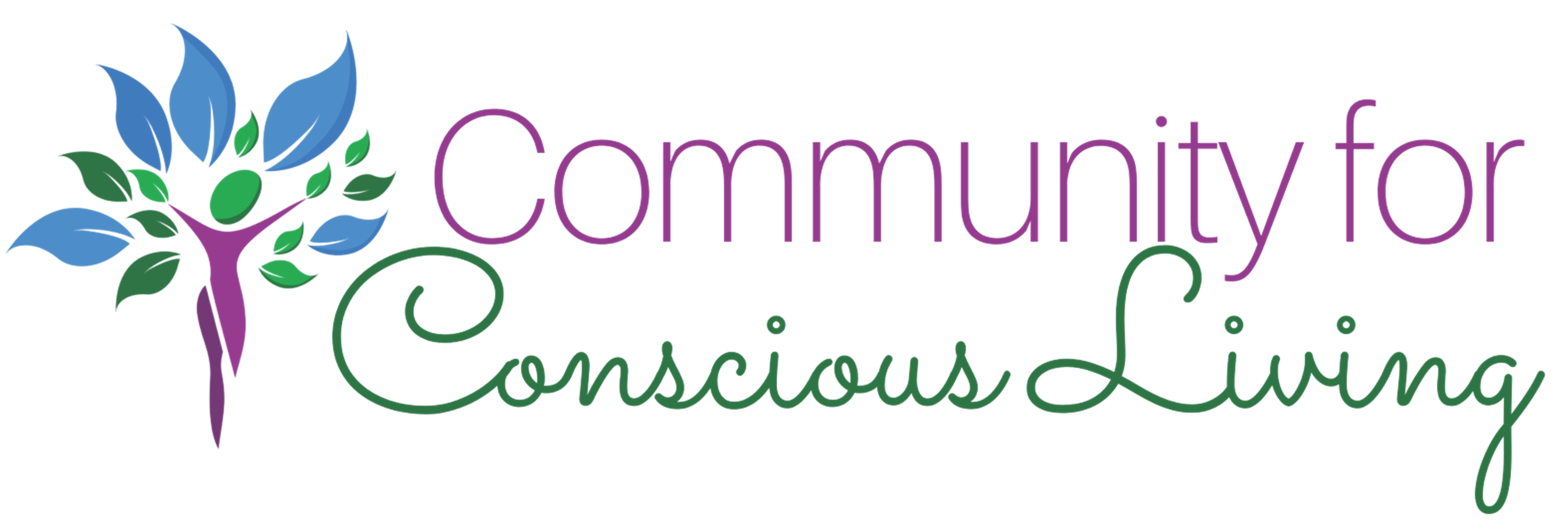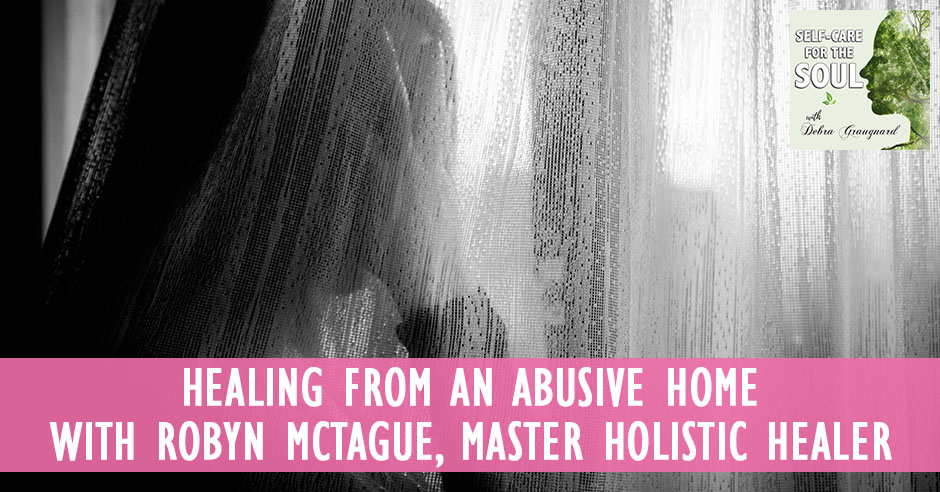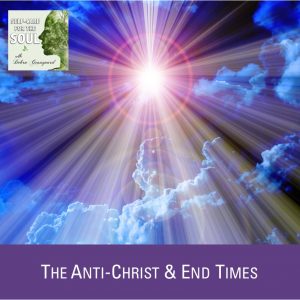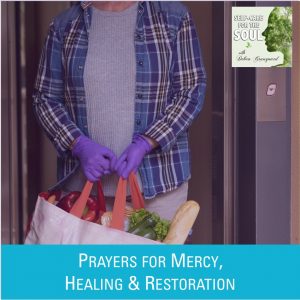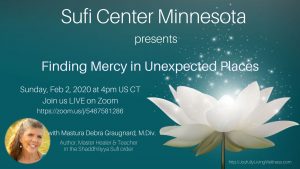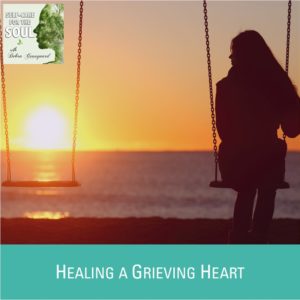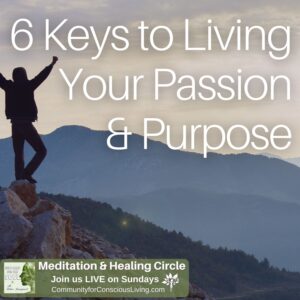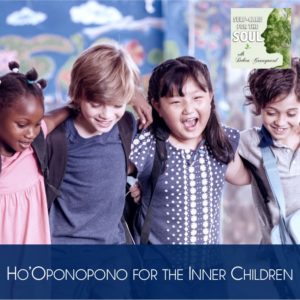We all have different lenses we use to look at the world. For survivors of abuse, however, still to this day there’s places where that victim dynamic can resurface. Robyn McTague, Master Holistic Healer and a survivor of abuse herself, opens up about how despite her training, she herself can sometimes wander into that helplessness. Robyn says that it has been so ingrained in us, that we can’t really fathom a different way of being. Fortunately, there’s a way to help people feel safe and build that rapport: energetic healing and some meditation. There’s a hurt inner child in there that needs to be heard, accepted, loved, and told that she didn’t do anything wrong. There is still hope for redemption.
Robyn McTague, Master Holistic Healer and creator of A Life of Choice Coaching, was raised in an abusive home – raised to be silent, to not question authority, to not rock the boat. A diagnosis of breast cancer in her 40s plucked her out of her busy professional life and landed her on her sofa, where she began a journey of silent introspection, truth-seeking and healing. Robyn felt that disconnect with Spirit, where the 4-year-old child couldn’t understand that she was protected. Robyn didn’t die, but in her inner child had thought that the Source had abandoned her. Discover Robyn’s incredible journey of finding back her connection with Spirit – and receiving true healing for her body, mind, heart and soul.
—
The following interview is from the While We Were Silent series. This interview features Robyn McTague. Robyn is a Master Holistic Healer. She’s the creator of A Life Of Choice Coaching. Robyn was raised in an abusive home. She was raised to be silent, to not question authority, to not rock the boat. When she was in her 40s, she was diagnosed with breast cancer. This plucked her out of her busy life and landed her on her sofa where she began a journey of silent introspection, truth seeking, and healing.
One of my favorite quotes from Robyn in this interview, she says, “I actually felt that disconnect with spirit where the four-year-old child couldn’t understand that she was protected. I didn’t die, but in my child mind, I thought that source had abandoned me.” In this interview, Robyn talks about how she rediscovered her connection with spirit and found healing for her body, mind, heart, and soul. Enjoy the interview. Thanks a bunch.
Listen to the podcast here:
While We Were Silent: Healing From An Abusive Home With Robyn McTague, Master Holistic Healer
Welcome to the While We Were Silent project. This episode’s guest is Robyn McTague. Welcome, Robyn.
Thank you.
It’s wonderful to have you here. Robyn McTague is a Master Holistic Healer. She’s creator of A Life Of Choice Coaching. She’s a teacher, numerologist, Motivational Map practitioner and an author. Her unique approach combines her knowledge of psychology, conflict resolution, and other techniques with metaphysics. She assists both adults and children in shifting their vibrations and perspectives, creating a life of freedom and choice. Robyn has experienced breast cancer, Hepatitis C and many challenges in her life and has been able to heal and move forward. Her mission is to assist others in their healing journeys in a safe, practical and gentle way. Thank you for being here, Robyn.
Thank you. I really appreciate this project that you’ve put together. It’s so needed out there.
It’s getting a great response so far. I’m looking forward to what you have to add to it. Can you start by telling us about your story and how it led you to what you’re doing now to help many other people?
I grew up in one of those very dysfunctional families as we all did, to some degree. With my journey, it was an alcoholic and rage-aholic father who was one of my abusers and my mother was mentally ill and suicidal. I didn’t have any support so it was easy to become a victim. That followed me around. My mom and I left my dad and brother, lived on our own and lived with families, and there were abuse situations there. I carried on and I knew that things had happened.
I knew about my dad, specifically, and some of the other people. I always wanted to learn and I did some groups in my 30s around eight-week group on sexual abuse. I did a bunch of work around that. That opened things up for a bit. I was married at the time and it was dysfunctional, so I ended up leaving the marriage. Within ten years, I was diagnosed with breast cancer in 2000. That was my spiritual wakeup call.
When I look back, I could see those places where when I was going toward spirit, everything was going well. I was on that journey and then I would stray from that. The fear would come up or not wanting to rock the boat because that’s how I was raised, to be silent and to not question authority. When I had the breast cancer, I sat here on my sofa for about six months and went inward. I didn’t have any sound on, there was no music, no TV.
I would just sit here and with my psychology background, I realized there was a disassociation going on. At the same time, it was a way the spirit was talking to me. Starting to go inward, what had happened about six months before I was diagnosed, I kept hearing this in my head, “Something big in your life is going to change.” It’s like, “Okay?” Things would happen and it’s like, “No, that’s not big enough,” and then something else.
This went on until I was diagnosed. It was like, “This is what it is.” It was like, “I know life’s going to be different. I don’t know how, but I have to wake up and figure out what’s going on with my life because it’s not working.” I was doing everything for everyone else. I was working full-time doing union work, strata work, and I was exhausted. You can’t continue like that, there’s no way. Part of that growing up was that perfectionism and wanting to do everything right for everyone else, the disease to please, as we call it.

I’ve had the circumstances when I was a child with that psychic gifting. I remembered it, though I didn’t delve into it. In one area, my mom was in the hospital for a year after one of her suicide attempts. I lived with another family, my cousins in Manitoba. We had a school project and we were supposed be doing some artwork that day, and I loved art. I came to school and I said, “I have to do my art project this morning,” and the teacher said, “No, we’re doing it this afternoon.” I was really insistent and I had no idea why. I came home at lunch time, it turns out my mom was there and was coming to take me away. We were going to live together again.
That has always stuck in my mind and reminded me that I had that connection to spirit, and I didn’t always follow it. I learnt later on some of the other abuse that happened with my father where my life was at risk. I felt that disconnect with spirit, where the four-year-old child couldn’t understand that they were protected because I didn’t die. In my child mind, I thought that source had abandoned me. How could a father kill their child or want to do that? It didn’t make any sense in my mind. After dealing with the cancer, how do I integrate back into life? I’d spent all this time being quiet. I worked in a high-stress environment working with injured workers who were in difficult situations.
The first thing I did was a retreat. That was really powerful for me, through the Calendar Society, something local we have here. It was a week of being nurtured and cared for. We had a one-on-one with the counselor. She was talking to me and saying, “For you, cancer wasn’t about loss. You’ve dealt with enough loss in your life, you understand that. For you, it’s about a connection to your spirit.” It broke me open. I came back to work and I had lunch with one of my colleagues in the union and she said, “Are you going to run for president? There’s never been a female president.”
I was well-respected and did all the work so they wanted me to run. Out of my mouth came, “No, I’m going to be a healer.” It didn’t make any sense at the time but that was the start of looking towards that. It was like, “How do I feel safe at work?” I found the Training in Power community where I learned about shielding and grounding. Within the first week, with the first shield, I could be around people again. It was a god-send and that’s why I teach it now to give back because I know how beneficial it was to me.
I want to thank you for sharing about your journey. It weaves that thread of connection to spirit all throughout and then returning to that, “I’ve got to bring that into my life and live that.” That’s a beautiful gift that your journey with disease and what healing gave you. Can you say more about what you’re teaching now and what you’re doing to help others?
Yes, the Training in Power classes is something that’s local. We do have teachers throughout North America. If anyone’s interested in that, they can probably find a teacher where they live. I do the Level One, which is the Adult. That’s about connecting with ourselves, finding our answers for ourselves, and shifting vibration. It’s a unique system in that it’s an active style of meditation, and every class has a healing system built into it.
For the children, we have a mini course of it. They learn about their bubble and how to stay safe. From age four, they can learn to have energetic boundaries and learn they don’t have to take on the negativity. I’ll draw a bubble and show the arrows bouncing off, and then show the hearts coming through so that they see that they can accept the love without the negativity. They learn a healing system and a calming system.
One of the parents has to come, which is what I love. They have a common language. They know how to help each other without leaking their energy. One example is a boy, his mom was reacting. Of course, it’s going to bring up stuff for the adults too and their history. He wanted to make light of it and be the jokester and help her in that way. He learnt that he could help her in a different way, keeping his energy for himself and sending that love and light to her to help her. Instead of getting angry at each other, they can say, “Use your tools,” or, “Use your calming system,” whatever it is.
Very nice. How old were these children?
It starts at age four. We break into three different age groups, four to seven, eight to twelve, and thirteen plus. The activities and the language are a little bit different based on the groups. I’m training to teach the Level Two for the Adults, which is our Shamanic Level, and that connection to the spirit of the animals and very powerful. That’s one aspect and that’s one thing I do that’s more local. I wanted to find other ways to help people that I can do remotely, and with the internet now, we can reach people in so many different ways.
The numerology, I also do the Motivational Map, which helps to give us a structure to look at how we view the world. We all have a different lens and way of looking at the world. People who have had abuse, I know for myself, still to this day there are places where that victim dynamic will come up. I can go into that helplessness. I question it, and it’s a process to learn that. It’s ingrained in us we don’t really see a different way of being. That’s one of the things I like to do at the beginning along with an energetic healing and some meditation to help people feel safe and build that rapport.
It’s about connecting to that little one inside too because there’s a hurt child in there that needs to be heard, accepted, loved, and know that she didn’t do anything wrong. For the longest time, in Level One, we teach about connecting with our inner child. I’ve done some work around that before. My child was so hurt; she was in a corner and was not talking to me because I was an adult. I had to spend a lot of time working her to help her understand I wasn’t there to harm her or to not be kind to her.
That’s one of the biggest things. We don’t understand what compassion is, and that’s too big of a leap of faith for most people. We need to go to that simple kindness of looking at how we react to animals, how we react to little children, so we can tap into that feeling or that vibration of that kindness and learn to do that for ourselves. To me, that’s key.
[Tweet “The more we go inward, the more that we can be more intimate and more connected to other people and to the world.”]The other part, I use the Dream Coaching method. We go into, “What is integrity? What is intention? What is your purpose?” All of these different things and help to come up with the big picture into, “What do I want in my life?” Everyone’s unique. I have a lot of different techniques that I do. I trained with Roger Callahan with Thought Field Therapy and different processes like that. I like to see where people are at and then move forward with what they need.
There are lots of tools out there. Use a lot of meditation and story. Because one of the biggest things is our brain is wired for story. When you can relate to someone, that’s the biggest thing with the rapport. Why this is powerful? When we can see that story, we can see how people got through it. We can see through to the other side. There’s that hope and there’s that piece of us that can relate to that.
I do volunteer work with the Cancer Society for women who are diagnosed. I support it, it’s so important so we don’t feel isolated because that happened in our journey. When you’re abused, you’re very much isolated, so having that safe space to be able to talk about it and to be witnessed in it. Witnessing is so important, that’s why we have weddings, funerals and different things.
That’s part of our societal brain, that we need about witnessing. I’ve even noticed for myself lately, I’ve been doing a deeper dive into the Enneagram and learning to coach with that and how much my inner child still needs that, to be witnessed. For me, it’s just seeing the importance of that. I’m writing another program that I want to do with women dealing with the abuse. I bring in some even more around music and vibration, the body work, and different things.
We have our physical body, then we have the etherics around us. We have the mental, emotional, spiritual and physical. We need to work on all those areas to have full balance and full health. That doesn’t mean that we can’t not have aches, pains, angst, fears, whatever. People have this idea, “I’m going to be this perfect person,” and they have this idea of what people are going to be.
I noticed that even for myself in the training. Yes, we are perfectly imperfect. We talk about that in the Level One class. When you come in and I see these lofty Level Twelve’s or Level Fourteen’s, it’s like, “They must have it all together.” We’re always on a journey. There’s always more to learn about ourselves and more depth. The more we go inward, the more that we can be more intimate and more connected to other people and to the world.
Do you do that work remotely with people?
Yes, I’ll do the coaching. I’m looking at some other packages. I want to make it accessible for people and where they’re at. At the same time, there’s a minimum that people need to spend and commit to. That’s why having the initial conversation to see where they’re at and what they really need before going further, that’s so important. Especially when we’re brought up with not questioning authority, because we haven’t been able to. “That looks good, that looks like a quick fix. This person looks like they can help me,” and we spend money, we almost hemorrhage money looking for the fixes.
A lot of these people unfortunately on a scale there’s ethical, unethical. You need to find the right fit. Without having that initial contact and conversation, that’s something I had to learn too is really check out that person. How do I feel about that person? Yes, they may have a system that works for them; it may not work for me. I have to really learn to check in with myself to see if this is something that speaks to me. That’s something I’m going to do.
Something that I can trust. When you’ve experienced that abuse, especially from the people that you consider authority, it’s important that you find a safe space for you and someone that you can trust to help and support you in your process.
I came up with these 3 C’s, Clarity, Comprehension, and Creation. Initially, we need that understanding and acknowledgement of what’s happened and that witnessing, and then understanding how that’s affected us in our lives, specifically. Then “What do I want to create from here? How do I move forward? What do I want to create my new life to be?”
Robyn, in this series called While We Were Silent, one of the things we’re delving into and exploring is why people stay silent after they’ve experienced abuse, sometimes for very long periods of time. Given your own experience and your experience in working with others, can you help to shed some light on that?
The first thing when I looked at that question, I was reminded of a trauma conference I’d been to years ago with Jennifer Freyd. She was the daughter of parents who were both psychologists. When she started counseling for herself in her 30s, these abuse memories came forward with her father. Her parents had wealth and society standing. They created this false memory syndrome association and discredited her. This permeated the whole psychology area for years, where people were not believed because it’s like, “How could you?” Someone’s planted it, and that’s why therapists and psychologists got afraid for a while.
They had to be careful how they worded things with clients because of this few out there that were planting memories. It’s like being abused all over again, and that’s the problem. As an adult, and our inner child, both wants that justice. They want that acknowledgement of what’s happened. They don’t see that justice, the credibility or anything changing in society. “Why would I come forward? No one’s going to believe me. It’s actually going to make my life worse.”
It’s still happening. I had a situation not that long ago that I felt was inappropriate, and I questioned it. It’s he said, she said. It wasn’t as extreme as other situations, it still was uncomfortable, and I knew other women who felt uncomfortable around this person. There was a pattern. It was like, “Well.” What happens is the onus then comes onto the person who’s been abused. They can go into that helpless mode, there’s possible ostracization. Depending on your workplace, you could be fired. All these safety and security needs come forward. One of the pieces of the Motivational Map is the Maslow’s Hierarchy of Needs, and that’s a triangle. The base layer is those safety needs. As we move up, we can come up to self-actualization. Once we have those basic needs met, that’s part of why people are coming forward along with others, we’re starting to move up.

That’s throughout society because of our vibrational shift and the affluence overall. Not that it’s for everyone, but there are much more middle class and people who have money to do the self-awareness things. There’s this place where, “There is something I can do,” but then there’s the piece where, “What’s the point?” and moving back into the helplessness. Even the corruption, there is corruption in what they grew up in, the situation, and then they’re seeing it again. Those who have money can do it, and others don’t. The whole internal stuff that goes on like, “Who am I to question this?”
Having that self-worth come up because that’s maybe been beaten out of them or taken out of them, and all different ways that they still feel isolated. It’s like, “How do you stand up for yourself when you couldn’t before?” All those areas where, especially as women, we question ourselves. There’s that imposter syndrome, with women especially who have had abuse, it’s even worse. Usually the abuse is by someone you know, that’s the highest percentage. This is a close relationship. There’s this betrayal that’s happened in “If someone who’s supposed to love me doesn’t love me, how will anyone else?”
The other important thing there, with the false memory and it coming up later in life, is the amnesia piece. There is that disassociation from our body that often happens during the abuse, there’s that piece of it. There’s also the piece where our life is attached to our caregivers, there’s a safety need, and a real need there. It’s a way for the human mind to put that aside so they can still attach in whatever way that’s possible with the caregiver, so they can function somewhat in whatever way they can in life. That’s why we see children who don’t thrive, because there’s nothing that they’re getting. There are lots of experiments and stuff, and we see that if there’s absolutely no attachment. Even though they might have food and shelter, they still might not live.
What hits in what you said there is that feeling that if we do come forward, if we do speak up, there will be a re-traumatization because of the people who don’t believe you. You end up going through a second trauma, if you will.
If that’s your only connection to family, to have that taken away from you can be difficult. For example, there are many people that wait until everyone’s dead in their family before bringing that forward. Especially if there’s incest, that’s one of the most challenging for people to deal with.
What then do you see as the consequences of living with unhealed trauma, keeping the secrets inside?
There’s such a continuum for people, from full-fledged PTSD to those places where we don’t function well in our lives. Difficulty making attachments or having deeper, intimate relationships, maybe short-term relationships or not close friendships, maybe lots of friends or feeling isolated too. There are places where we don’t want to move forward and be seen in different areas, it can affect our work life. There’s a place where that self-worth keeps us back and not speaking up about other things or going for the promotion because, “Everyone’s better than me,” deferring to authority figures. It can be problems with sleep, with food and nourishing the self, not doing any self-care, burning yourself out because you’re doing for everyone else. There’s that place where we want to help everyone else. We talked about perfectionism and that disease to please, and there’s also the place where we’re rescuing other people because we want to be rescued.
In the child’s mind it’s like, “If I rescue you, then you’re going to rescue me,” we know that’s not necessarily true, at the same time; there’s that underlying need to want to do that, to see if we can work it out. There are many ways in your day to day life, your relationships, and to harming yourself. We’re seeing teenagers, younger and younger, doing the cutting. It’s like, “I can’t feel anything, I’m going to do something to feel something,” because, at least it’s something. With raising children, it doesn’t matter if it’s good or bad attention, they want attention.
It’s like that with pain. When we’re abused, we take on the abuser’s shame, guilt, blame, all of that. We think it’s us. Here in Canada, we have the joke. We always say “Sorry.” Women do that a lot too. It’s like, “It must be my fault,” so taking that on, not understanding correct responsibility. That’s been a huge area of growth for me because having to take on incorrect responsibility at such a young age, and then the abuse on top of that. It was like I took on the responsibility for everything. It’s like, “No, it’s response ability,” so what can I respond to? Learning boundaries and all of that is part of it.
Boundaries are something that gets skewed when you have grown up in abusive situation. That can show up in a number of ways in life also. Robyn, this is a personal question. Do you feel your diagnosis with cancer helped opened the door for you to heal a lot of this past trauma? The other side of that is do you feel that this experience with the past trauma and everything that you lived with contributed to your getting cancer?
I do, for a couple of reasons. What’s interesting, when I first was diagnosed, everyone was shocked. I was 44, I was considered young. I was very active, I ran all the time, I ate well. On the outside I looked very healthy. I was in a lot of ways, it’s just that I didn’t know about nurturing. If you believe in Louise Hay, I love her chart. I don’t think it’s 100% that’s why I got this, still it gives us clues as to what was happening in our emotional body. Of course, the breast is around nurturing. I never got that growing up, I didn’t have any of that.
Yes, there was a link. I lived on farms. I used to visit a town where my cousins lived where we’d play in the water where there was a mill there. The water was polluted. There are a lot of things that created it. On that emotional level, there was an area of not understanding what nurturing was. If I didn’t learn that, how could I give that to myself? That’s why I teach Level One, it’s self first. The oxygen mask, unless we take care of our self first, we can’t take care of anyone else. That’s a part of it.
[Tweet “The spirit speaks to us all the time, and the last place we’re going to listen is our physicality.”]I also believe that spirit speaks to us all the time, and the last place we’re going to listen is our physicality, and that was a big piece for me. I was not listening to my spirit. I was going off in this, “What’s the next thing to look good?” Because of also living in poverty, we lived on welfare a lot. I didn’t have anything of my own, to have those safety needs met, I didn’t want to end up like my mom. I had to be super responsible. I couldn’t rely on anyone else, I couldn’t ask for help even if I needed it.
Having a partner or even having kids, because I was responsible, it was something that wasn’t even my frame of reference. I need to take care of me and I need that secure job, I worked for a safety organization. It’s black and white, you needed safety, you work for a safety organization corporately for many years. That made me feel safe, I got a pension and all of those things. It definitely colored my life and what I was doing.
Trust in the universe. It was learning that trust again. Once you connect to your spirit, you begin to understand what true trust is. I didn’t have that. People betrayed me all over the place. Even when I came forward with my family, there were misunderstandings. My brother and his family, we didn’t speak for three years. It was challenging. I still do a prayer for myself around trusting the universe, accepting that source, and the universe will provide. That gratitude piece reminding ourselves every day, that that’s what we need to do for ourselves.
What was the greatest transformation in your life? The realization that you have come into in your daily life?
Getting back humor, fun, and some joy. I was very humorless. That’s common because when we’re concerned around our safety, it’s like checking things out and letting your guard down. We build up these walls when we can’t trust other people. People who know me better say, “You’ve got a great sense of humor,” other people don’t necessarily know that when they first meet me, and that’s becoming more and more of who I am. Letting that out and joking because it was not accepted.
That’s also part of your uniqueness about your own sense of humor, whether other people get it or not. We are conditioned to be a certain way and the more we can bring ourselves to what we do. That’s why I talk a lot about our uniqueness and celebrating that, not being concerned about the external. We play to the external so much, it’s about going inward, deciding for ourselves, making our decisions for ourselves, and trusting our connection with our spirit.
That’s a beautiful thing to look forward to on the healing path. We’re coming more and more into that. When we don’t have that, there comes a time, maybe for a long time we don’t realize it, but there comes a time where we start to recognize, “There’s something really off here.” I am starting to want those things. I love to ask that question and hear what has been the transformation in your life because it does give hope for people. It gives hope on an individual level and on a collective level. Think of what the world can come to when more and more people begin to shift in themselves.
Making that connection, that heart connection with other people and being able to do it. That’s how we’re going to shift everything on the planet, shifting the vibration, connecting, and seeing us each as individuals and learning to connect with their spirit. People will still betray you in other ways, at the same time not to take it personally. This is them. It’s not about you, it’s their journey. When we start to see those patterns and release them, then it’s going to happen less and less because there’s an energetic match there. The more we heal, the more we bring in healthier people and healthier things into our lives.
In terms then of the shift in the collective, what’s your vision? What do you see for us? What’s possible?
Our vibration is definitely shifting on the planet. There’s more and more wanting reconciliation, like here in Canada, we have the Reconciliation Commission with our indigenous communities, and we have a task force on missing and murdered women in the community. We’re teaching about our genocide with the residential schools in the classroom, finally. This is really breaking open, people are aware of what happened. I’ve been aware for quite a while, but there are a lot of people who knew nothing about it. There’s a new film that’s out here called Indian Horse. It combines our love of hockey with the whole residential school situation. That’s what can happen, is that reconciliation. When there’s that initial witnessing and acknowledgement of what happened, then we can move the discussion forward and not necessarily from a place of blame.
When you learn more, you find out that the abuser was abused. If someone’s bullied, they’re either going to be bullied or become the bully. Not they’re a victim and can’t change their behavior, at the same time they need to learn and grow. Especially with the males, because they have never been socialized much in the past to accept feelings, to understand what feelings are, to those things where we see the victim impact statement. Those are very powerful, so that people can hear how it affected them on a day to day life. Most of the time, they don’t understand that. When you can open the dialogue and then move through to true forgiveness, and that’s some of the work I do with John Newton’s Ancestral Clearing, it’s clearing some of that forgiveness on the DNA because we also come in with our historical rate, whatever that is, Germans with all of that and their history. There’s a lot we carry on with that.
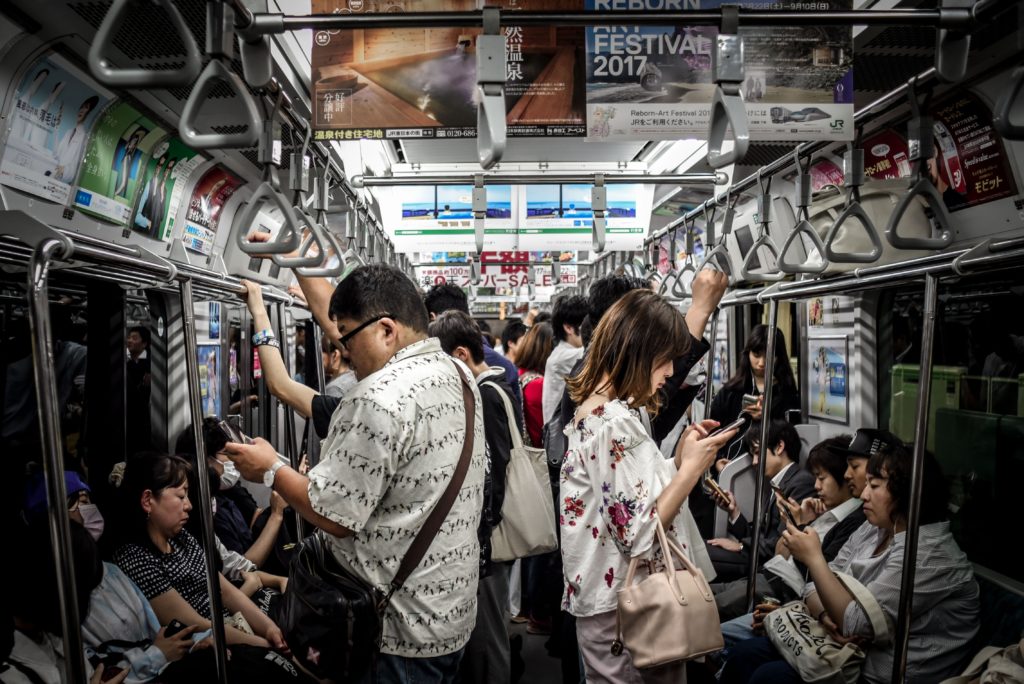
When we can come through that and have the discussions not from a place of blame and shame, but from, “This is how this has impacted me. This is the truth of who I am,” people feel safe enough to have those discussions and back and forth. “How can we now move that forward?” We’re having a lot of discussions here around the Foster Care system and that happened to me too. When my dad was killed and my mom decided to move to another town, I was fourteen. It’s like, “I don’t want to move again,” from my last couple years of high school. I ended up living with a lovely family and we’re still family to this date. At the same time, when you reach eighteen, that’s it. What are you going to do? You’re thrown out there. They continue to support me in a lot of different ways, at the same time I was responsible for myself.
This is where we see a lot of foster kids fall into drugs, prostitution, and different things because they haven’t been given the skills. We need to give the skills out there. This is what’s great about this, here’re some things that you can do for yourself and when we come together, support each other and build community, there’s more and more want and need for that community. With all the online stuff, people are realizing they’re missing that connection. Even what Facebook has done, it’s all about the personal connections because they’re seeing what’s the trend and they’re following that. That’s one of my excitements with the Enneagram part of the learning, there’s building community. I look forward to providing some of that in the future.
We have the smaller communities and then the connecting globally. We have that ability now. There are lots of shifting and sometimes it gets worse before it gets better. It galvanizes people too. We see that in the US and people are stepping forward and saying, “No, this isn’t right,” and questioning things. The same in the civil rights and the women’s movement. With women it was this big push and then things went underground. It’s that push that’s like, “No, this is not correct, we need to bring this to the forefront again in order to heal it.”
One of the reasons for doing this series is that hopefully there are some people out there who are struggling with that place inside with where they’ve kept silent or they’re really needing to move forward on the healing journey or wanting to. This provides some resources of people that are accessible that they can reach out to, that they connect with, that they can have conversation with.
I love what you’re doing and what you’re saying about getting people in conversation, out of the blame and the shame but into, “This is how this has impacted my life.” Having those dialogues, letting that be free to be released. We hold so much inside and when we can free that up to be released. It’s like giving breath back to the body, giving life back to the body and freeing up the psyche to begin to have some interactions, trust, community, and be open in different ways. I really appreciate what you’re doing and what you shared there.
Yes. I think people, just a small example is keeping a secret. With abuse, it’s a big secret. Even if you think back when you were in elementary school and you’re with a friend and that secret. How much energy it took to hold that in and how much that you don’t have access to. That’s why that piece of integrity with ourselves is important, it’s similar to that in that if I say I’m going to do something, it’s going to be on my mind causing me to use energy towards that until it’s done, and it’s such a relief. That’s why it’s important to let those secrets out. Often what’s happened is people were threatened. They were threatened with their lives, with family members, and all sorts of things. That’s why all this stuff coming out is amazing.
The hope is that we come together, it sounds like in your programs as well, we come together. We enable or foster a deeper understanding of each other and more compassion and mutual respect. We can really come into harmony with each other and build a brighter world.
It all starts from that harmony within.
Robyn, what do you have to say to that person who is either still suffering in silence or starting on that healing path?
Start to find ways where you can reconnect with your body first, because often we’ve made our body wrong. That’s where the biggest shame and blame I find comes up. We’re a physical being, when we’re abused, our body responds to the stimulus. I see many people make themselves wrong for feeling that their body reacted, maybe they had an orgasm or maybe they had some sexual feelings. This is a normal body response. That stops a lot of people from dealing with things because it’s like, “If I did that, then there must be some part of me that wanted it, liked it, or something.” To know that you were never to blame, that it was never your fault no matter what happened, and to really focus on that you have the right to heal. You have the right to be yourself. You have the right to the light.
One of the things I like people to do is look at a small child and see how they don’t have any power against an adult. They had to do what they had to do to survive. That’s just our mechanism. Our brain and our body does what it does to protect us. We continue those different patterns and now you have an option. You can do it differently but be thankful and grateful that you’re still here and that you have options. I find that sometimes gives the courage and that ability to step with it through the fear. There’s always going to be fear, that’s why we say courage is stepping through the fear, because the fear is going to be there. It’s going to lessen over time and it feels so insurmountable.
[Tweet “Start to find ways where you can reconnect with your body first because often we’ve made our body wrong.”]The other thing for people is that they think, “If I go into those feelings I’m never going to get out of it.” If I go into anger, if I go into the sadness, if I go into grief, it’s all part of the healing is to deal with the emotions. For the longest time, “What are emotions?” It was real learning for me to go through that and really understand what emotions are, that I had the right to them, and that I had them. Some of them were buried, and that is a way toward healing but source never gives us more than we can handle in our healing journey. It’s layers and feels like it’s never going to end. There is a bottom for now and you reach a new level and then you go to the next level. It’s a process. Having the witnessing, having the support, if something doesn’t’ feel right to you, change.
You may attract at the beginning or somewhere along your journey someone who reminds you of the abuser and you may not feel safe. Be kind and gentle with yourself to say, “This isn’t feeling right for me. I need to leave and regroup.” Going in with the idea of, “I have a choice,” because we didn’t have choice before. That’s what I encourage people to think about, you now have a choice. You have choice in every minute and every day. You’re going along a path and if that doesn’t work, we have free will to choose something different. It’s finding that kindness for yourself. Even a baby animal, I find that’s another thing that people really can connect to with that heart and feel that unconditional love. The more that we can feel the unconditional love externally, the more we can feel that vibration of what that is and then bring that into ourselves.
Recognize that the child within needs the love and the acceptance just as you would see a child outside of yourself, and want to give that love, compassion and kindness for that child. Thank you so much. Robyn, where can people find out more about you?
My website is ALifeOfChoice.ca. My email is Robyn@ALifeOfChoice.ca.
Thank you so much, Robyn. Thank you for your time here. Thank you for sharing your insights, your wisdom and your story. I want to invite our audience, if you feel connected with Robyn in any way and you’d like to reach out to her, please do. You’re invited and welcome to join us in the Facebook group called While We Were Silent. It is a Facebook group where you can come and share your a-ha moments, your insights, whatever it is that you want to share, your stories, reach out for support, offer support to others. Just be a part of a journey of healing, understanding, of love, compassion and respect. Thank you for being here. Thank you for being a part of it. Robyn, thank you so much.
Thank you for doing all of this.
Important Links:
- While We Were Silent
- A Life Of Choice Coaching
- Training in Power
- Dream Coaching
- Thought Field Therapy
- Cancer Society
- Jennifer Freyd
- Louise Hay
- Reconciliation Commission
- Ancestral Clearing
- ALifeOfChoice.ca
- Robyn@ALifeOfChoice.ca
- While We Were Silent – Facebook Group
- http://whileweweresilent.com
- https://www.facebook.com/groups/whileweweresilent
- http://alifeofchoice.ca/
About Robyn McTague
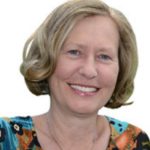 Robyn McTague is a Master Holistic Healer, creator of a life of choice coaching. She is a teacher, numerologist, motivational map practitioner and an author. Her unique approach combines her knowledge of psychology, conflict resolution and other techniques with metaphysics.
Robyn McTague is a Master Holistic Healer, creator of a life of choice coaching. She is a teacher, numerologist, motivational map practitioner and an author. Her unique approach combines her knowledge of psychology, conflict resolution and other techniques with metaphysics.
She assists both adults and children in shifting their vibrations and perspectives, creating a life of freedom and choice.
She has experienced breast cancer, Hepatitis C, and many challenges in her life and has been able to heal and move forward.
Her mission is to assist others in their healing journeys, in a safe, practical and gentle way.
Find her at http://alifeofchoice.ca.
